
No Pills No Shots No Surgery No Downtime
Prostate Issues
When it comes to problems with the prostate, it’s not a matter of “IF”, but a matter of “WHEN” they will develop. Among prostate problems men face, the most common are Benign Prostatic Hyperplasia (BPH) / Enlarged Prostate and Prostatitis / Chronic Pelvic Pain Syndrome (CPPS).
Though these conditions have different etiologies and physiological manifestations, they both could cause the same symptoms including significant pain as well as interference with important bodily functions such as urination and ejaculation.
What is BPH (Benign Prostatic Hyperplasia)/ Enlarged Prostate?
BPH, known as Benign Prostatic Hyperplasia, Benign Prostatic Hypertrophy, or Benign Prostatic Obstruction, is a condition in men in which the prostate gland is enlarged but not cancerous. It is the most common prostate problem in men, with the number of men affected increasing progressively with age.
By age 60, 50% of men will have some signs of BPH / Enlarged Prostate. By age 85, 90% of men will have signs of the condition. As the prostate enlarges, it presses against and pinches the urethra, the tube that carries urine from the bladder to the penis. The bladder wall becomes thicker. Eventually, the bladder may weaken and lose the ability to empty completely.
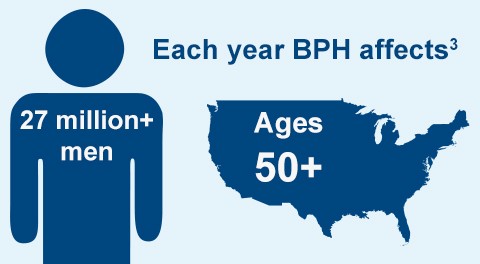
What are the symptoms of BPH?
The most common symptoms of BPH or having an Enlarged Prostate are:
Difficulty or Straining When Urinating
Frequent or Urgent Need to Urinate
Pain or Burning Sensation When Urinating
Dribbling After Urination
Pain in the Perineum and/or Pelvic Area
Pain or Difficulty With Ejaculation
Retrograde Ejaculation
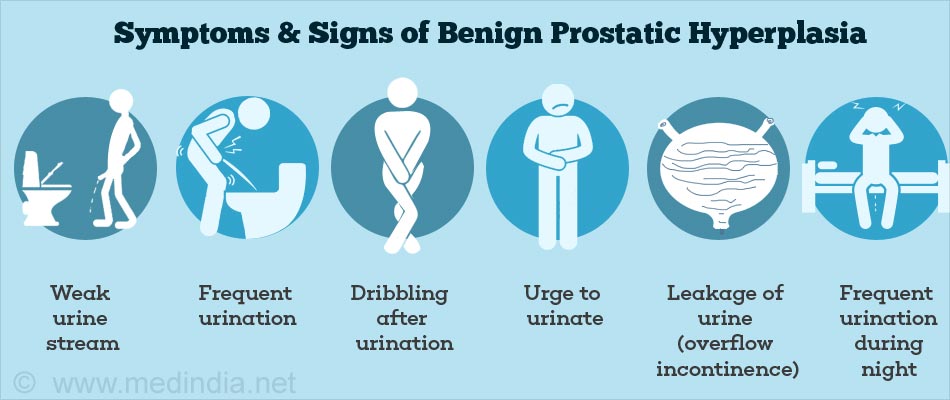
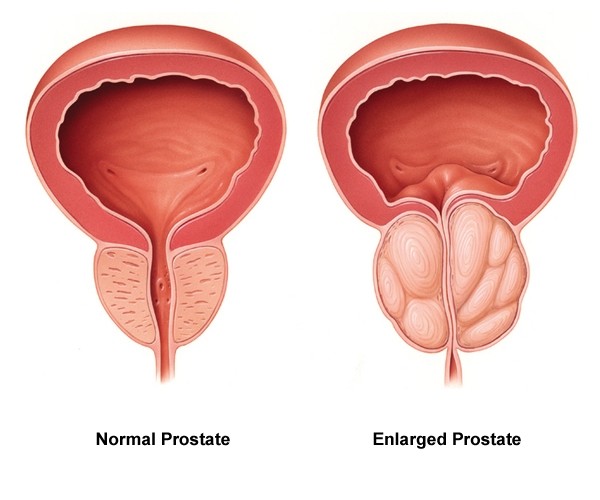
What happens if BPH is left untreated?
If left untreated, an Enlarged Prostate / BPH could result in serious complications including:
Acute Urinary Retention
Chronic or Long Lasting Urinary Retention
Blood in the Urine
Urinary Tract Infections (UTIs)
Permanent Bladder Damage
Permanent Kidney Damage
Bladder Stones
Infertility
How is Enlarged Prostate / BPH usually treated?
The predominant methods of treating BPH / Enlarged Prostate have been prescription medications and surgery. Medications usually prescribed are alpha blockers and/or 5-alpha reductase inhibitors. These drugs could help relieve symptoms for some patients, however, the relief is many times temporary and in adequate. Additionally, medications come with a long list of side effects including nausea, headaches, retrograde ejaculation (when semen cannot exit the penis and instead enters the bladder), erectile dysfunction/impotence, and permanent eye/vision problems.

Surgery is the considered the classic alternative to prescription medications and involves cutting, heating, and/or removing prostate tissue to open the blocked urethra. Though it could be effective in helping with urination issues, surgery is painful and also rife with complications and side effects such as loss of ejaculation, excessive bleeding, and erectile dysfunction, in addition to other surgical risks like infection, general anesthesia, post operative catheterization and long recovery times.
Fortunately, there is an effective alternative therapy for men with enlarged prostates or BPH which is non-invasive and pain-free without side effects of medications or complications of surgery.
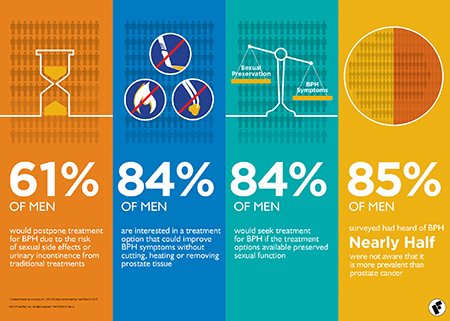
Extracorporeal Shock Wave Therapy for
Enlarged Prostate / Benign Prostatic Hyperplasia (BPH)
Eases Urination
Increases Urination Flow Rate
Alleviates or Eliminates Pain When Urinating
Minimizes the Frequent Need to Urinate
Makes Ejaculation Easier
Alleviates or Dissipates Pelvic Pain
Decreases or Eliminates Retrograde Ejaculation
Extracorporeal Shock Wave Therapy (ESWT) is a clinically proven and highly effective treatment that has been used for decades in Europe for the treatment of a large range of conditions including erectile dysfunction / impotence and is now used to address BPH or Prostate Enlargement.
ESWT for Enlarged Prostate / BPH involves the application of acoustic pressure waves to the perineum (area near the prostate) using an FDA cleared 1 medical device.
ESWT works on a number of levels on the prostate including:
- Breaking up Scarred/Fibrotic Prostatic Tissue
- Reducing Spasticity
- Restoring Elasticity of Prostatic Tissue
- Dissipating Calcification
- Neovascularization and Revasculization of the Prostate
- Restoring Normal Blood Flow to Prostate
- Increasing Nitric Oxide (NO)
- Decreasing Inflammation
Extracorporeal Shock Wave Therapy for the Prostate is safe, minimally invasive, and could ease or eliminate urination and ejaculation issues in addition to alleviating pain.
Patients are recommended to have 8 to 20 shock wave treatment sessions, depending on severity. Treatment sessions are only 20 minutes and are usually given once a week.
Press play on the video to see how simple and effective this therapy is for Enlarged Prostates / BPH or Prostatitis. ——–>
Ready for better quality of life? Call us at (808) 379-2000 or complete this form to schedule a private consultation.
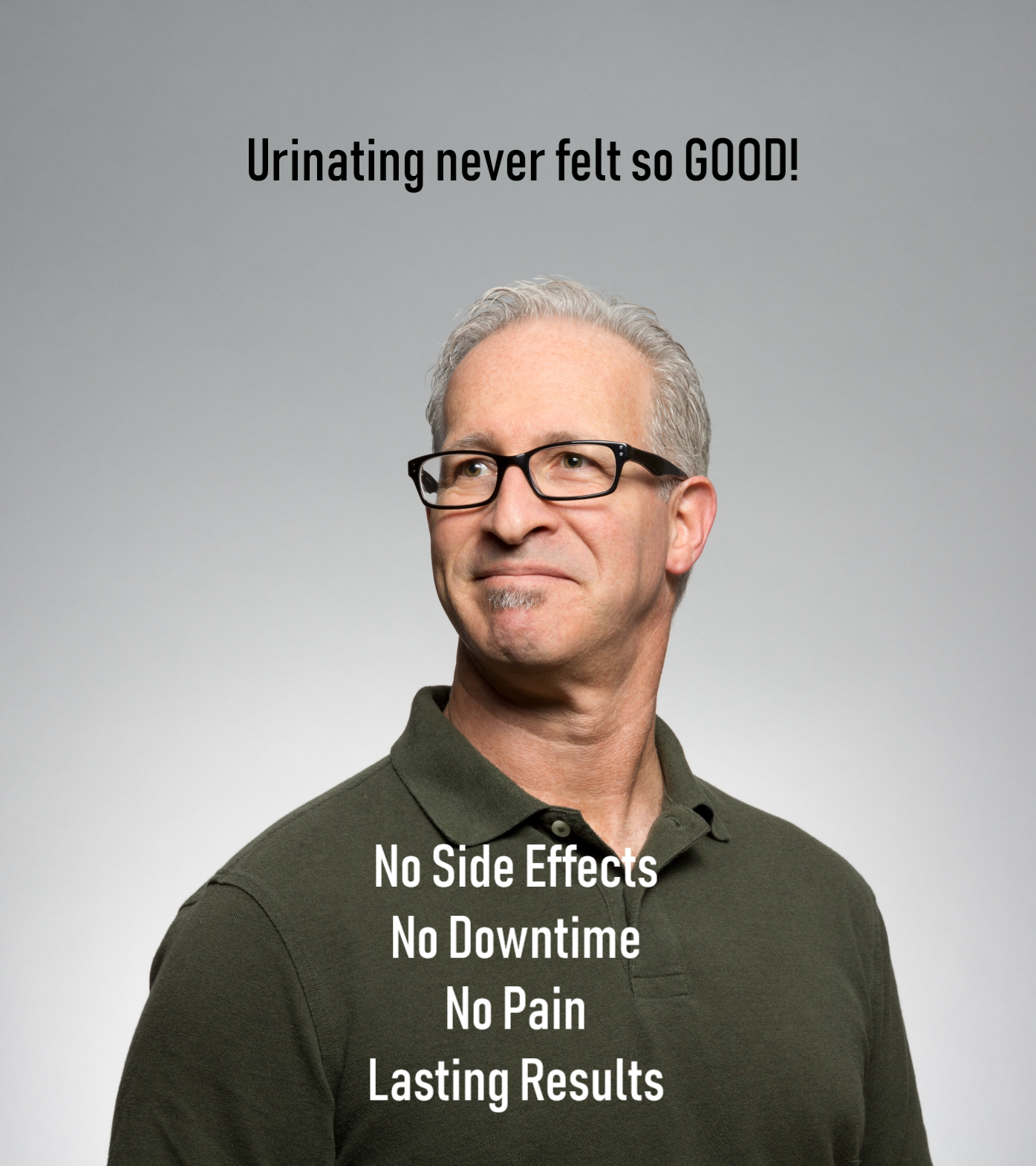
What is Chronic Nonbacterial Prostatitis?
Chronic Nonbacterial Prostatitis, also known as Chronic Pelvic Pain Syndrome (CPPS), is a common condition in men characterized by inflammation of the prostate. Chronic Nonbacterial Prostatitis is the most common form of prostatitis. It is a condition without a clear cause, but which can affect the quality of life of affected men.
How is Chronic Nonbacterial Prostatitis / Chronic Pelvic Pain Syndrome usually treated?
The “traditional” treatment for prostatitis has been in the form of medications which merely mask symptoms. Anti-inflammatories can sometimes alleviate pain. Alpha blockers typically prescribed to men with enlarged prostates are also used to ease urination in men with prostatitis. As discussed above, the side effects of the medications are plentiful and could cause additional health concerns including retrograde ejaculation, erectile dysfunction, and permanent vision problems.
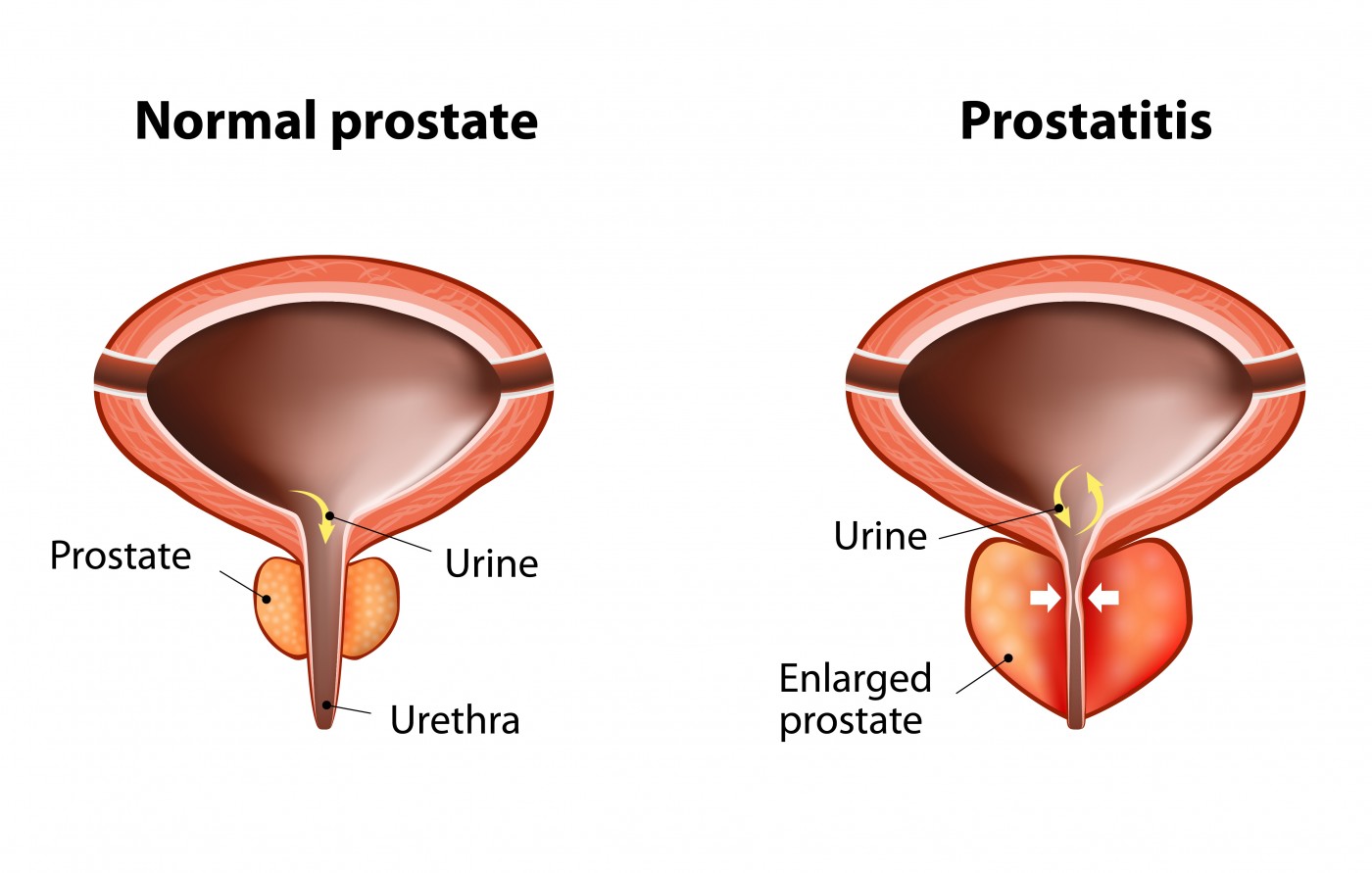

Breaking up Scarred/Fibrotic Prostatic Tissue
Reducing Spasticity
Restoring Elasticity of Prostatic Tissue
Dissipating Calcification
Neovascularization and Revasculization of the Prostate
Restoring Normal Blood Flow to Prostate
Increasing Nitric Oxide (NO)
Decreasing Inflammation
Extracorporeal Shock Wave Therapy for
Chronic Nonbacterial Prostatitis / Chronic Pelvic Pain Syndrome
Alleviates or Eliminates Pelvic Pain
Eases Urination
Minimizes the Frequent Need to Urinate
Makes Ejaculation Easier
Decreases or Eliminates Retrograde Ejaculation
Call us at (808) 379-2000 or complete this form to schedule a private consultation.
Is Extracorporeal Shock Wave Therapy covered by health insurance?
Although Extracorporeal Shock Wave Therapy is a clinically proven, effective treatment, it is not covered by health insurance. Extracorporeal Shock Wave Therapy for the Prostate generally ranges from $2800 to $6000 , depending on severity and the number of treatments needed. There is no downtime, no bedrest required, and no side effects.
